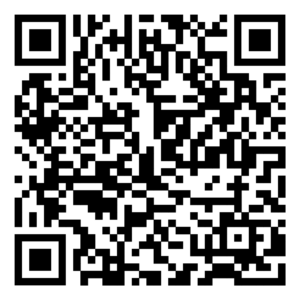Mes informations
Ma présentation
Demystifying the Capella FlexPath Nursing Assessment Code With the flexibility of Capella FlexPath examinations, students may manage their personal and professional obligations while studying at their own pace. This paradigm allows students to advance as soon as they show mastery of a subject, in contrast to traditional educational models. For nurses who are trying to juggle their job and school obligations, this flexibility is very helpful. Students may finish their degrees quickly and acquire the skills they need for their professions by emphasizing competence over class time. One of the primary advantages of Capella FlexPath assessments is their adaptability to individual learning preferences. Since students control their own pacing, they can dedicate extra time to challenging topics while moving quickly through familiar material. This structure eliminates unnecessary repetition and fosters independence, as students must take responsibility for managing their schedules and deadlines. As a result, they develop self-discipline and time management skills that are crucial for both academic and professional success. Capella FlexPath assessments are structured around real-world applications, ensuring students acquire practical knowledge that is directly relevant to their fields. These capella flexpath assessments emphasize critical thinking and problem-solving rather than rote memorization, allowing students to demonstrate their ability to apply theoretical concepts to realistic nursing scenarios. By incorporating simulations and case studies, the program better prepares students for the complexities of healthcare environments. For nursing students pursuing their degrees through Capella’s FlexPath model, these assessments serve as an effective bridge between education and career advancement. The ability to complete coursework at a self-determined pace allows them to maintain a balance between learning and professional obligations. By demonstrating competency through applied assessments, students enhance their qualifications while gaining valuable hands-on experience. This makes the FlexPath approach a practical and appealing choice for nursing professionals looking to further their careers. Nursing writing services provide critical support for students who need assistance with their academic and professional writing requirements. Given the demanding nature of nursing programs, students often seek expert help to ensure their research papers, case studies, and assignments meet high academic standards. These services help students submit well-structured, evidence-based work, improving both their academic performance and understanding of nursing concepts. By utilizing professional writing assistance, students can focus more on their clinical training while maintaining strong written communication skills. A major benefit of nursing writing services is the expertise of the professionals involved. Many of these services employ writers with backgrounds in healthcare and nursing, ensuring that the content is accurate and aligns with academic guidelines. These experts are well-versed in formatting styles, citation requirements, and evidence-based practice, helping students produce quality work that adheres to institutional standards. This level of support enhances students’ ability to convey complex medical concepts in a clear and structured manner. Another significant advantage of nursing writing services is their ability to help students manage tight deadlines. Nursing students often juggle coursework, clinical practice, and part-time work, leaving little time for in-depth research and writing. Professional writing services offer timely assistance, ensuring students can meet deadlines without compromising on the quality of their work. This can be particularly beneficial for those enrolled in accelerated programs like Capella FlexPath, where efficiency is essential. Beyond simply improving grades, nursing writing services help students develop their own writing skills. By providing model papers and guidance on research techniques, these services promote academic integrity and encourage original thought. Students can learn how to effectively structure arguments, incorporate evidence, and communicate their ideas more persuasively. Over time, these skills contribute to their overall success in both academic and professional settings. NURS FPX 4000 Assessment 5 challenges students to apply theoretical nursing concepts to real-world healthcare situations. This assessment requires students to critically analyze case studies, identify major issues, and propose evidence-based solutions. By completing this task, students enhance their ability to synthesize information from various sources and apply it to patient care scenarios. This process strengthens their decision-making skills and ensures they are prepared for complex situations in professional nursing practice. Interdisciplinary collaboration is a key component of this assessment. Nurses must work closely with doctors, therapists, and other healthcare professionals to provide comprehensive patient care. Through this assessment, students explore effective strategies for communication and teamwork in medical environments. Understanding how to collaborate within a healthcare team is crucial for improving patient outcomes and ensuring seamless coordination of care. Ethical considerations also play a significant role in nurs fpx 4000 assessment 5. Nurses frequently encounter challenging ethical dilemmas that require careful decision-making. This assessment requires students to evaluate ethical concerns and apply appropriate ethical frameworks to resolve conflicts. By engaging with realistic ethical scenarios, students gain a deeper understanding of their professional responsibilities and the moral complexities of nursing. Successfully completing this assessment prepares students for the multifaceted challenges of the nursing profession. By integrating theoretical knowledge with hands-on applications, they develop essential analytical and critical thinking skills. These competencies are crucial for delivering high-quality patient care, managing medical challenges, and advancing in their careers. The assessment serves as an effective measure of a student's readiness for real-world nursing responsibilities. NURS FPX 4015 Assessment 4 emphasizes evidence-based practice in healthcare settings. This assessment requires students to identify a significant healthcare issue, conduct a thorough literature review, and propose an evidence-based intervention. By focusing on research application, students learn how to integrate clinical expertise with scientific findings to improve patient care. This ability to bridge theory and practice is a crucial skill for nursing professionals. A critical element of this assessment is evaluating the credibility of research sources. Students must analyze different studies, assess their validity, and determine their relevance to patient care. This process involves reviewing research methodologies, interpreting statistical data, and drawing meaningful conclusions. By mastering these research skills, students enhance their ability to apply evidence-based solutions to clinical practice. Patient-centered care is another fundamental aspect of NURS FPX 4015 Assessment 4. Nursing students must ensure that their proposed interventions align with patient needs, values, and preferences. This holistic nurs fpx 4015 assessment 4 approach to care planning encourages students to consider cultural, ethical, and social factors when making clinical decisions. By focusing on individualized patient care, nursing professionals can improve treatment outcomes and foster stronger patient relationships. Completing this assessment equips students with the ability to implement research-driven improvements in healthcare settings. By understanding how to critically assess and apply research findings, nurses can contribute to enhancing healthcare quality and patient safety. This competency is essential for professional growth, as it enables nurses to advocate for best practices and continuous improvements in clinical environments. NURS FPX 4035 Assessment 2 focuses on leadership and communication within nursing. Strong leadership is essential in healthcare, as it influences patient outcomes, staff morale, and overall workplace efficiency. This assessment challenges students to analyze various leadership approaches, evaluate their effectiveness, and develop strategies for managing healthcare teams. By examining leadership principles, students learn how to foster a positive and productive work environment. Effective communication is a key component of this assessment, as it directly impacts patient care and team collaboration. Nurses must be able to convey important information clearly and efficiently to colleagues, patients, and families. This assessment explores common communication barriers, techniques for conflict resolution, and best practices for fostering teamwork in healthcare settings. By refining their communication skills, students can enhance their ability to collaborate in diverse medical environments. Leadership theories play a central role in this nurs fpx 4035 assessment 2, requiring students to evaluate different models such as transformational and servant leadership. Understanding these frameworks helps students develop their own leadership styles and apply them effectively in clinical settings. Strong leadership contributes to improved patient safety, higher staff satisfaction, and more efficient healthcare operations. Successfully completing this assessment prepares students for leadership roles in nursing. By developing skills in team management, decision-making, and communication, they become well-equipped to handle the challenges of modern healthcare. Strong leadership not only benefits individual nursing professionals but also enhances the overall quality of patient care, making this assessment an invaluable part of their educational journey.































































